Morocco
Adopting from Morocco
This program is open to Sunni Muslim families whose Iman can provide a letter attesting to a family’s active and consistent practice. If you are not a lifelong Sunni Muslim and converted to Islam later, you must have been practicing for at least five years for Hopscotch to consider your application. Having the right partner on the ground and successfully navigating the ever-changing landscape is paramount to your family’s success. Hopscotch’s Moroccan partner is highly experienced and very respected with the US embassy in Casablanca, Moroccan family courts, and among orphanage directors in all regions.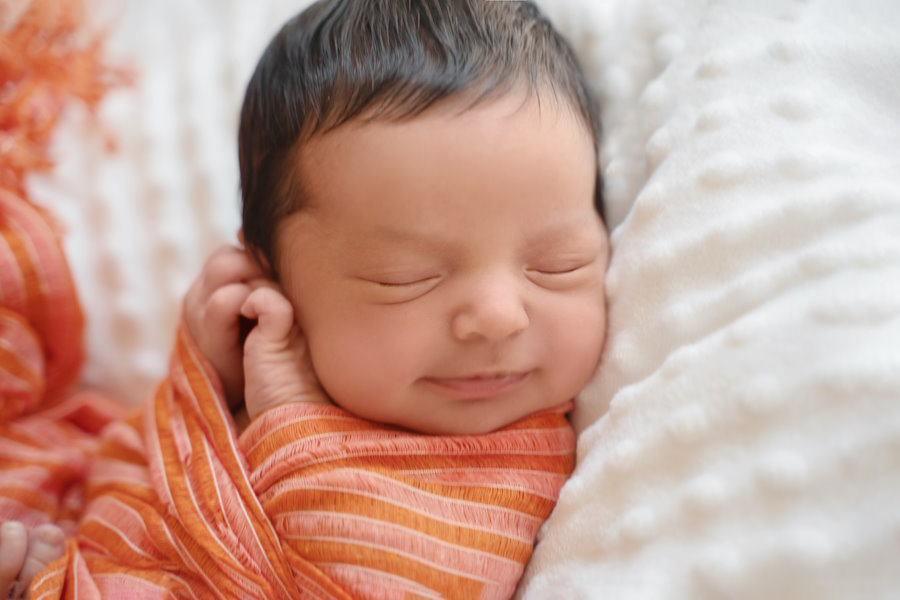
Children Eligible for Adoption
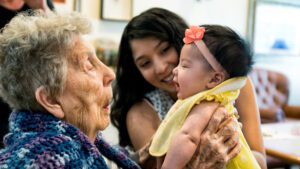 The children placed for adoption from Morocco are generally between three and twelve months of age at the time of referral and most are boys. The vast majority of babies and small children in Moroccan orphanages are born to single women, who, due to the cultural and societal norms in Morocco, are unable to care for their babies. The infants are usually surrendered for adoption at maternity hospitals immediately after they are born. From the standpoint of safety, fortunately, most children are placed immediately or abandoned into orphanage care versus living on the street.
The children placed for adoption from Morocco are generally between three and twelve months of age at the time of referral and most are boys. The vast majority of babies and small children in Moroccan orphanages are born to single women, who, due to the cultural and societal norms in Morocco, are unable to care for their babies. The infants are usually surrendered for adoption at maternity hospitals immediately after they are born. From the standpoint of safety, fortunately, most children are placed immediately or abandoned into orphanage care versus living on the street.
Unfortunately, Morocco’s economy is currently struggling, and many of its people live in abject poverty. Numerous Moroccan children have been orphaned by the conditions in which their families live. Estimates as recent as 2020 indicate an average of 24 infants are abandoned daily in Morocco. As of 2020, approximately 65,000 children are in need of forever families, a devastating crisis level.
Older children and children with special needs are also in need of forever families. In our Morocco program, families may not request a child of a certain gender. Families must be open to infant boys and accept that infant girl referrals are very, very rare and require a significantly longer and unpredictable wait time.
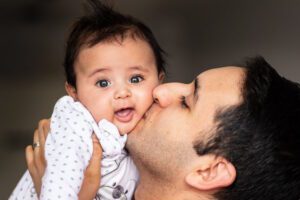 Hopscotch has maintained a very successful program in Morocco since 2010. Per USDOS statistics, kafalas have been successfully issued to US families working through any of the accredited primary adoption service providers since the brief suspension of 2012, numbering approximately 57 in 2012, 24 in 2013, 43 in 2014, 22 in 2015, 20 in 2016, 31 in 2017, 18 in 2018, 30 in 2019, and 17 in 2020. Due to the great impact of Covid-19 on international travel and limited governmental capacity in countries around the world, Hopscotch placed 6 Moroccan children in 2020, 9 children in 2021, and 4 children in 2022. Hopscotch anticipates placement numbers to increase commensurate with Morocco’s stability post-Covid; however, this information remains tentative and subject to change without warning. Each city and court is unique in the ways it manages each case. This information regarding the process, timelines, and required travel is meant for general purposes only and is not specific to your case.
Hopscotch has maintained a very successful program in Morocco since 2010. Per USDOS statistics, kafalas have been successfully issued to US families working through any of the accredited primary adoption service providers since the brief suspension of 2012, numbering approximately 57 in 2012, 24 in 2013, 43 in 2014, 22 in 2015, 20 in 2016, 31 in 2017, 18 in 2018, 30 in 2019, and 17 in 2020. Due to the great impact of Covid-19 on international travel and limited governmental capacity in countries around the world, Hopscotch placed 6 Moroccan children in 2020, 9 children in 2021, and 4 children in 2022. Hopscotch anticipates placement numbers to increase commensurate with Morocco’s stability post-Covid; however, this information remains tentative and subject to change without warning. Each city and court is unique in the ways it manages each case. This information regarding the process, timelines, and required travel is meant for general purposes only and is not specific to your case.
Eligible Applicants
Married couples and single women may adopt from Morocco. The country does not permit same sex marriage, domestic partners, or single men to adopt. There is no specific age restriction on the prospective parents, but a Judge does have discretion and will determine the suitability of each prospective adoptive parent in relation to a child’s age. Based on Hopscotch’s experience and that of our in-country partner, married couples, and single women over the age of 45 must be open to adopting a child that is over the age of 12 months. The prospective parents must be employed and practicing Sunni Muslims. We expect all applicants to take this very seriously and honor the legal codes and culture.
Program & Process
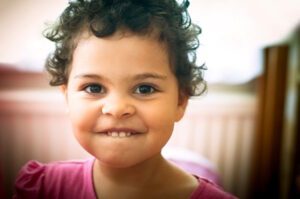 Having the right partner on the ground and successfully navigating the ever-changing landscape is paramount to your family’s success. Hopscotch’s Moroccan partner is highly experienced and very respected with the US embassy in Casablanca, Moroccan family courts, and among orphanage directors in all regions.
Having the right partner on the ground and successfully navigating the ever-changing landscape is paramount to your family’s success. Hopscotch’s Moroccan partner is highly experienced and very respected with the US embassy in Casablanca, Moroccan family courts, and among orphanage directors in all regions.
Once you have decided to bring a child home from Morocco, as your Hague Accredited Primary Provider, Hopscotch will be responsible for ensuring a service plan is developed and implemented on your behalf. Next, we will assist you in locating a Hague Accredited home study agency in your state of residence. After making an application and contracting with Hopscotch, we will provide dossier templates and guidance every step of the way. While undergoing your home study, you’ll simultaneously be working on your dossier for Morocco. A dossier is a package of documents which verifies critical information contained in your home study. This assures the Judge that the placement he is making is in the best interest of the child.
After submission of your complete dossier along with your USCIS approval letter, Hopscotch will review the contents and forward your complete dossier to Morocco. Once your dossier arrives in Morocco, it will undergo translation and subsequently be presented to the orphanage and the Court of Minors.
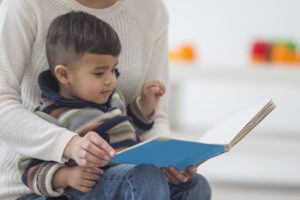 At present, a referral of a relatively healthy infant boy is made known to Hopscotch approximately 18 to 24 months after the submission of your dossier. It can take longer if the court decides to issue a referral out of the chronological order of waiting families based upon his assessment of the best interest of the child. Alternately, timeframes may be shorter for families open to adopting a child over the age of 12 months or those with special medical needs. After an eligible referral has been chosen for you by the orphanage and court, a photo, video and basic medical information about the referral will be shared with you. If you accept the referral, you’ll be officially invited to travel to Morocco to begin the Kafala. Most families have approximately two weeks’ notice of their proposed travel dates. Kafala is a guardianship and not a full and final adoption.
At present, a referral of a relatively healthy infant boy is made known to Hopscotch approximately 18 to 24 months after the submission of your dossier. It can take longer if the court decides to issue a referral out of the chronological order of waiting families based upon his assessment of the best interest of the child. Alternately, timeframes may be shorter for families open to adopting a child over the age of 12 months or those with special medical needs. After an eligible referral has been chosen for you by the orphanage and court, a photo, video and basic medical information about the referral will be shared with you. If you accept the referral, you’ll be officially invited to travel to Morocco to begin the Kafala. Most families have approximately two weeks’ notice of their proposed travel dates. Kafala is a guardianship and not a full and final adoption.
Upon receipt of your referral information, we require each family to utilize the services of an International Pediatric Adoption Specialist who can assist you in evaluating the referral’s health and development in context of the child’s place of birth, institutional care, and any other special considerations unique to the child. This specialist is not to be confused with your regular pediatrician. Hopscotch can provide a list of these specialists.
Plan to make a single trip of approximately 6-8 weeks. Your stay in-country can be a little longer or sometimes, though rarely, a little shorter. Your travel dates should remain flexible due to possible court strikes and holidays—none of which are under the control of Hopscotch or our in-country partners. If married, both parents must be present for the first two weeks. If one parent must return home to care for another child or meet work restrictions, the Judge will take this into consideration and possibly allow your spouse to remain and act on your behalf with a power-of-attorney.
Hopscotch’s partner in Morocco has been assisting American families for many years and has a unique understanding and appreciation for the cultural differences and family needs. His work is very important in ensuring that your Kafala journey is successful and enjoyable. Recommendations will be made in advance of your travel for hotels and apartments, as applicable.
Our partner will meet you at the airport upon arrival. He’ll have a Hopscotch sign, and we will create a team WhatsApp account in advance of travel to be sure you feel confident that Hopscotch’s partner will be waiting on you and for communication throughout your travel.
 Regardless if you arrive to Casablanca or Rabat, you’ll be met by our partner and then travel by private car to Rabat to begin your first order of business, is to be settled into your apartment. The following day you will have an appointment with the orphanage director and to be introduced to your future child. Bring a list of questions recommended by your International Pediatric Adoption Specialist. After this visit, you’ll be taken to a waiting room where several families from around the world will be meeting and visiting their referred children, some meeting their referred children for the first time and some visiting their now familiar future children. This is one of the most intimate moments of your journey yet also one of the most difficult because it takes place in a room with other families. However, you’ll find a great source of encouragement and support among our partner and the parents.
Regardless if you arrive to Casablanca or Rabat, you’ll be met by our partner and then travel by private car to Rabat to begin your first order of business, is to be settled into your apartment. The following day you will have an appointment with the orphanage director and to be introduced to your future child. Bring a list of questions recommended by your International Pediatric Adoption Specialist. After this visit, you’ll be taken to a waiting room where several families from around the world will be meeting and visiting their referred children, some meeting their referred children for the first time and some visiting their now familiar future children. This is one of the most intimate moments of your journey yet also one of the most difficult because it takes place in a room with other families. However, you’ll find a great source of encouragement and support among our partner and the parents.
We encourage all families to have their child undergo an independent medical examination and to address the International Pediatric Adoption Specialist’s recommended questions or testing at this time. Share the observations and outcomes with your specialist and Hopscotch. We are here to support you. The child’s medical examination will be at your expense.
From the onset, you will need the court’s approval to initiate the Police Criminal investigation, and interview with the Islamic Affairs, undergo a Social Welfare investigation and local police clearances in the city in which your referred child resides.
The police investigator will ask questions affirming data contained in your dossier, such as name, date of birth, etc. This appointment could take 15 minutes or a full day depending on the availability and line in wait. The next day will be devoted to your appointment with the Islamic Affairs Ministry.
Once these appointments and investigations are complete, permission from all three entities is gathered and you will then visit the Court of Minor Affairs in the city in which your child resides. This is to obtain the Executed Kafala, also known as the Guardianship for your child.
The wait for the Kafala to be issued can be between 7-10 days. Once our partner is notified the Kafala is ready to be picked up, this is considered a legal Execution of the order granting custody and guardianship from the orphanage. This also allows you to take photos of your child and visit any independent doctors for assessment.
After the Execution is granted, our partner will assist you in requesting a Letter of Permission for the child to leave the country. Once the Letter of Permission is received, our partner will assist you in requesting a Moroccan passport for your child. The wait for a passport can take up to 10 days. Both parents must be present for this appointment, unless otherwise pre-arranged with your court. Immediately following the Kafala’s Execution, the Crown Prosecutor will invite the family into private chambers to discuss in private any known social history of the child. If no history is known, this too will be conveyed to you.
Once you have possession of your child’s Moroccan passport, all documents will be translated into English. These will be sent to Hopscotch to allow us to assist you in filing the remaining USCIS documents, prior to your visa interview appointment. Our partner will assist you again with travel and accommodations in Casablanca and will coordinate a medical examination which is required of the US embassy. After this exam, a sealed envelope will be provided to you. This envelope, along with the certified translations and original documents will be organized for your visa appointment.
Once everything is in order, our partner will schedule your child’s on-line visa appointment. Our partner will attend the visa appointment with you. During this appointment you’ll need to have your new child present. The consul will ask you some questions about your experience and verify your documentation. After this interview, the consul typically invites you to return within 10 days to take your child’s Moroccan passport with an IR-4 visa. After you have the visa in hand, you can depart from Morocco to finally take your new child home.
This is a time for great celebration! Congratulations!
*There are no guarantees with the timing of each necessary step. Please remain flexible should there be a delay. Remember that each city is unique and court strikes are common in Morocco. This can make a Moroccan adoption unpredictable. This information is meant to be used for general purposes and not to be held rigidly in your expectations. Hopscotch and our partner work hard on behalf of each child and family to ensure your Kafala proceeds as expediently as possible. We ask that each parent be mindful of the cultural business protocol.
It is important to note, the Moroccan court will grant guardianship in lieu of an adoption. Once the family returns to the US, an adoption must take place in the family’s state of residence to finalize the adoption which will then recognize the child as a US citizen. Two post placement reports conducted by a social worker are required at a minimum. Additional family-generated reports will also be required to keep Kafala a positive experience for the orphanage directors and courts that have entrusted a beautiful child into your care. Failure to comply can result in other waiting children being prohibited from joining their forever families.
*Please remember that the Moroccan court may act swiftly or take months to issue the guardianship. Neither Hopscotch, nor our in-country team has any influence over the timing or process, please plan accordingly.
The Country
In 788, about a century after the Arab conquest of North Africa, successive Moorish dynasties began to rule in Morocco. In the 16th century, the Sa’adi monarchy, particularly under Ahmad AL-MANSUR (1578-1603), repelled foreign invaders and inaugurated a golden age. In 1860, Spain occupied northern Morocco and ushered in a half century of trade rivalry among European powers that saw Morocco’s sovereignty steadily erode; in 1912, the French imposed a protectorate over the country. A protracted independence struggle with France ended successfully in 1956. The internationalized city of Tangier and most Spanish possessions were turned over to the new country that same year. Morocco virtually annexed Western Sahara during the late 1970s, but final resolution on the status of the territory remains unresolved. Gradual political reforms in the 1990s resulted in the establishment of a bicameral legislature, which first met in 1997. The country has made improvements in human rights under King MOHAMMED VI and its press is moderately free. Despite the continuing reforms, ultimate authority remains in the hands of the monarch.
Morocco is located in Northern Africa, bordering the North Atlantic Ocean and the Mediterranean Sea, between Algeria and Western Sahara. The country is about the size of California and the climate is Mediterranean, becoming more extreme in the interior. Ethnic groups include Arab-Berber 99.1%, other 0.7%, and Jewish 0.2%. Morocco’s religious composition includes Muslim 98.7%, Christian 1.1%, Jewish 0.2%. Languages spoken in Morocco are Arabic (official), Berber dialects, French often the language of business, government, and diplomacy.
Islamic culture is deeply woven into Moroccan life. Traces of Islamic influences can be found in the country’s food, etiquette, art and holidays. At night, some cities may develop hot street food spots. Although Islam prohibits drinking of alcohol, nightlife, especially in larger cities such as Casablanca and Marrakesh, includes bars and clubs.
Morocco has fast food outlets such as the ubiquitous McDonald’s chain, but you must get a better portrait of the culture by sampling local cuisine. Unexpected favorites may develop, such as a broth with snails or the Moroccan staple of Harira, a soup typically served rather sweet.
Amazing souvenirs can be found throughout Morocco, from high-end artwork to great street vendor calligraphy and jewelry. Even if you can pay the asking price, embrace the culture and engage the seller by bargaining.
Families may be interested to know the Healthdata.org has reported the top ten diseases are most prevalent in Morocco to be ischemic heart disease, stroke, Alzheimer’s disease, diabetes, road injuries, diabetes, lower respiratory infect, hypertensive heart disease, neonatal disorders, and COPD. The average salary in USD was approximately 11,339.24 per year in 2022 and the average life expectancy for a man is 71 years and a woman is 73 years.
Post Placement Reporting Requirements
Post Placement Report (PDF)
Department of State’s Case Data Verification Form
Fees
Contact Hopscotch Adoptions, Inc to request a fee schedule.
Recommended Reading
For Children
The Butterman by Elizabeth Alalou& Ali Alalou
The Caliph’s House by Tahir Shah
In Arabian Nights by Tahir Shah
Zaki & Zoltan Adventures: A Trip to Morocco by Titi Sule
The Spices of Morocco the Most Aromatic Country in Africa by Baby Professor
Morocco (Pogo Books: All Around the World) by Kristine Spainer
General
Casablanca by Tahir Shah
Lonely Planet Morocco 13 (Morocco) by Sarah Gilbert